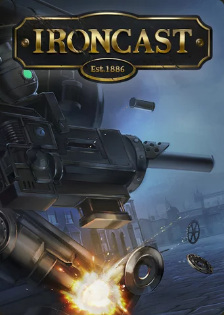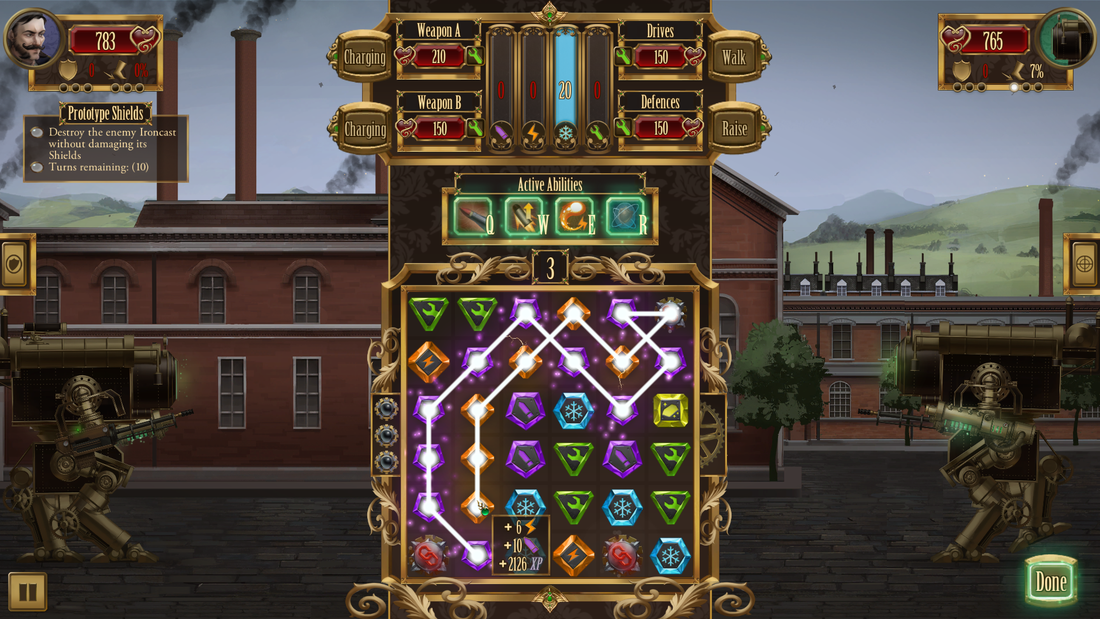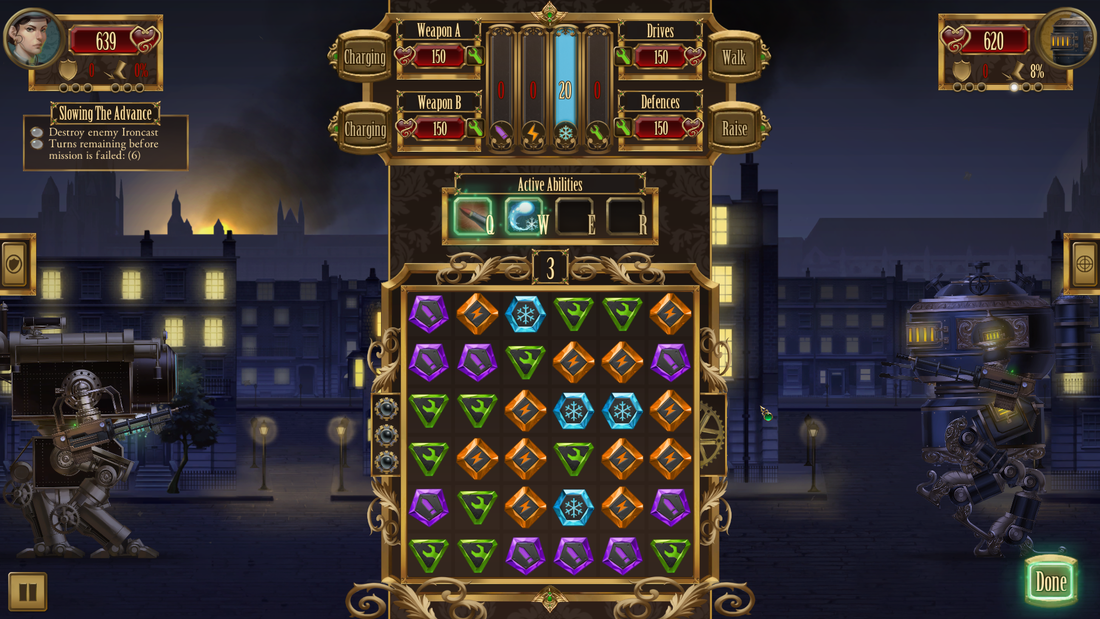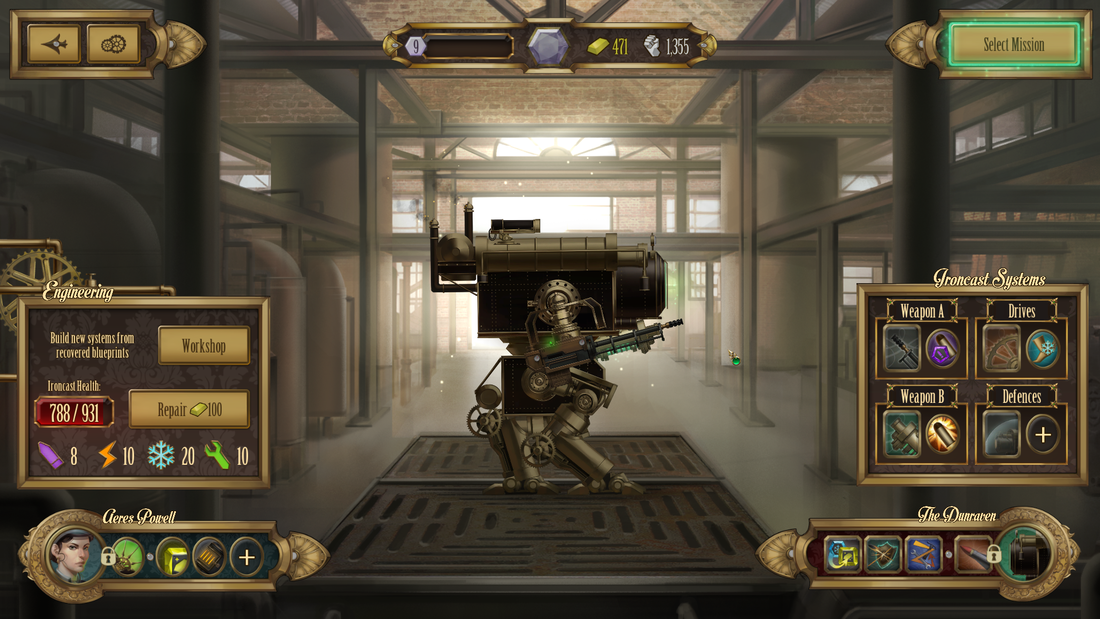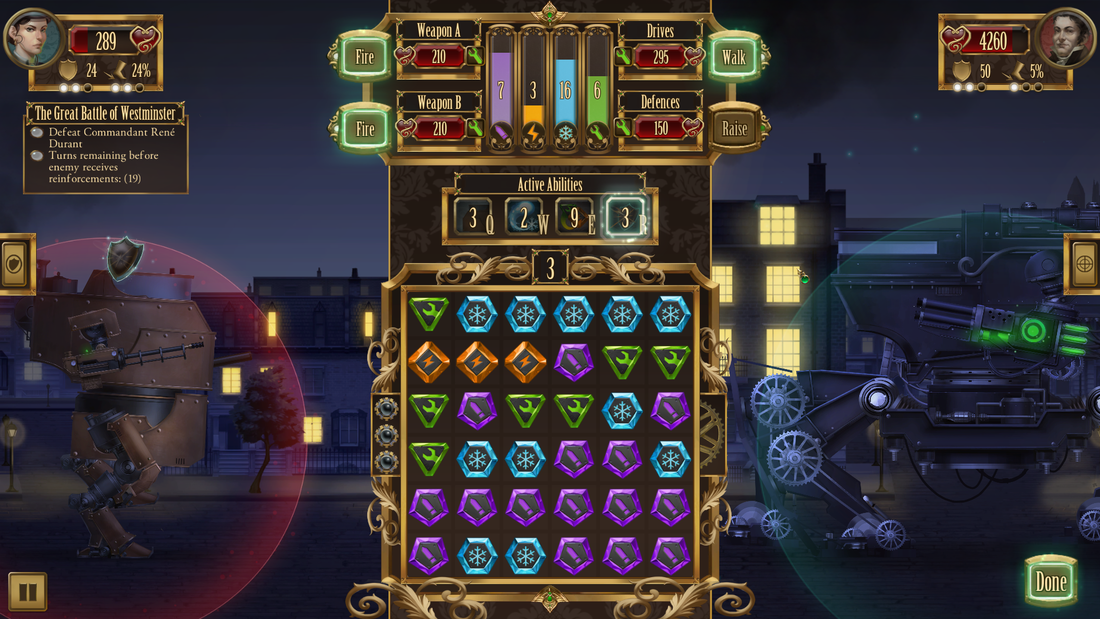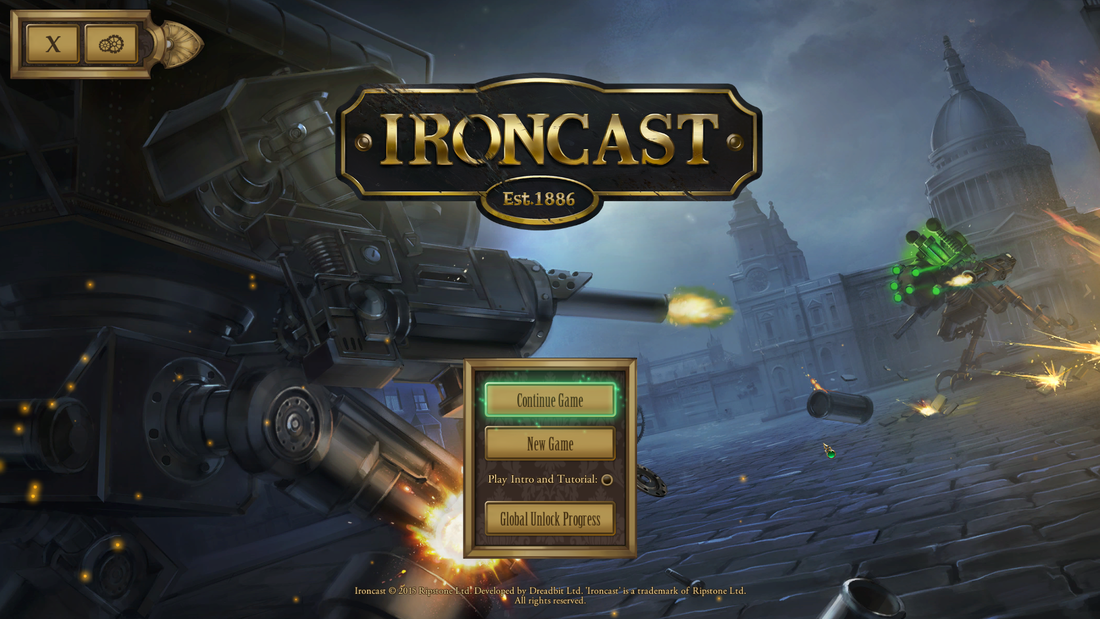IRONCAST (PC)
Even if the results aren’t always perfect, we should celebrate games that dare to be different. Ironcast is a hybrid of two very different gaming pursuits, a match-3 puzzler and a military turn-based strategy. On the surface, not an obvious combination. Puzzle games are traditionally associated with instinctive gameplay and quick sessions. Strategy lends itself to slower, heavier affairs, more weighted towards tactical considerations and thinking ahead. Somehow, Ironcast manages to take the best facets of these disparate experiences, making for an addictive and surprisingly satisfying endeavour.
The British Empire is facing invasion from the French. During Victorian times, at the hands of steampunk mechs. The player’s job is to triumph in combat by managing four resources: ammunition, energy, coolant and repair. Each is represented by coloured nodes on a match-3 grid. The player has three turns to collect as many nodes as they can, making use of overdrive and link bonuses where possible. That’s the puzzle part. The strategy part is what you do once you’ve gathered these resources. Fire on the opponent, build shielding, repair damaged systems? You can target specific sections of the enemy mech, neutering their weaponry, incapacitating their shields and so on. Whilst this all might sound a lot to be dealing with, there’s a relative immediacy to Ironcast and it’s very moreish. Battles hang frequently in the balance, creating tense encounters as you weigh up risking an extra attack to try to finish off an opponent before their next turn.
Linking nodes allows the player to grab a whole load of resources, which can help turn the tide of battle
A single Campaigns runs over eight encounters that, as well as straightforward, one-versus-one battles, includes survival (withstand an onslaught for a designated number of turns), Collection (matching box nodes), Salvage (defeating an enemy whilst leaving a specific part of their mech undamaged) and Trade (bartering for additional money or manpower). Levelling is bolstered by long node links, as well as nabbing the odd bit of scrap salvage found lying around the board. At the end of each mission, you’ve got to weigh up how best to spend your scrap, be it to increase node capacities, develop new weapons or shields, or repair existing damage.
Whilst Ironcast’s visual style is perhaps a little austere, there’s a pleasing functionality to it all, whilst the distinctive steampunk style is well realised. The various mechs and pilots proffer their own stats, signature moves and dialogues and whilst the myriad augmentation upgrade categories can appear overly busy at times, the game is intuitive and presented effectively. Perhaps surprisingly, its music is magnificent. Edward Hargrave’s compositions inject excitement, purpose and suspense into the mix, lending the battles a real sense of theatre. They’ll still be spinning around your head, long after the last shells have been fired.
Whilst Ironcast’s visual style is perhaps a little austere, there’s a pleasing functionality to it all, whilst the distinctive steampunk style is well realised. The various mechs and pilots proffer their own stats, signature moves and dialogues and whilst the myriad augmentation upgrade categories can appear overly busy at times, the game is intuitive and presented effectively. Perhaps surprisingly, its music is magnificent. Edward Hargrave’s compositions inject excitement, purpose and suspense into the mix, lending the battles a real sense of theatre. They’ll still be spinning around your head, long after the last shells have been fired.
Ironcast’s biggest problem is its lifespan feels somewhat manufactured. Dying ends your campaign, something that happens a lot over the opening four or five hours of play. This isn’t anything new for a rogue-like, of course. Part of what keeps you coming back is the ‘global ranking’, an additional levelling system that continues to grow as you return for more tries. Here, the player is drip-fed excessively small but (after significant amounts of play) collectively helpful upgrades. This starts to sap the morale somewhat. Repeat plays are as much a necessity as they are for learning game mechanics and improving tactics because opponent mechs are too powerful to beat in the first dozen hours of play.
This isn’t to say you won’t play a lot of Ironcast. I spent more than 20 hours on it, a highly respectable haul for any one-player puzzler, or strategy game, for that matter. It’s gripping in half-hour chunks and proves a fascinating and engaging challenge. However, the whiff of unfair design rears its head now and then, as building up a good run, only to be ambushed by a super-tough foe, can be very deflating.
As unusual gaming hybrids go, however, this is undoubtedly one of the better ones. With Ironcast, Dreadbit took the genus of two very different gaming pursuits and created a distinct and addictive experience that will keep gamers happy for hours. The dispiriting reality of numbers counting for more than tactical nous denies it classic status, but it’s still a gripping and highly playable title. Worth investigating for the soundtrack alone; it’s one of the best of its era.
As unusual gaming hybrids go, however, this is undoubtedly one of the better ones. With Ironcast, Dreadbit took the genus of two very different gaming pursuits and created a distinct and addictive experience that will keep gamers happy for hours. The dispiriting reality of numbers counting for more than tactical nous denies it classic status, but it’s still a gripping and highly playable title. Worth investigating for the soundtrack alone; it’s one of the best of its era.
